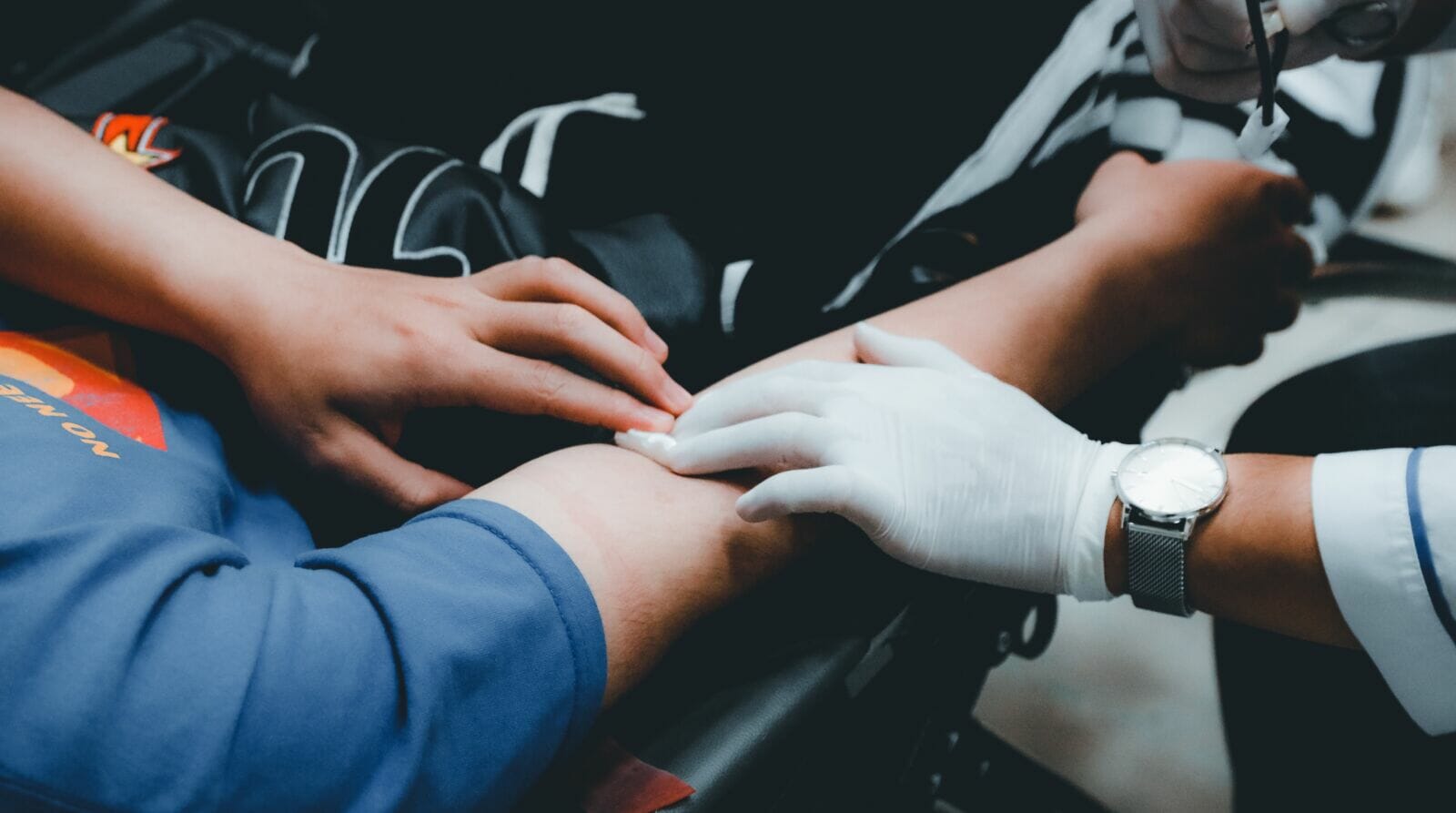Organizations that provide blood donation services in India act as a symbol of hope and care in the healthcare industry, uniting communities to meet the pressing need for a dependable and safe blood supply. These organizations play a vital role in unifying donors and recipients, thereby bridging the gap between the two. This is particularly important in India, as the demand for blood continues to grow due to a variety of medical requirements.
However, it is important to understand the frequency of blood donation and the considerations to bear in mind when making a donation.
This article outlines the work of the seven leading Indian blood donation organizations and their mission, the services they provide, and their contribution to the health and wellbeing of millions of individuals across the country.
Here is the list of blood donation organizations:
1. Dera Sacha Sauda
Dera Sacha Sauda is the leading organization dedicated to humanitarian efforts in India. Blood donation is one of the most important humanitarian services performed by DSS followers all over the world. It is one of the leading humanitarian services of the Indian country from the front of the world. It is sending blood to the Border soldiers which helps our army to regain its strength on the battlefield. Many helpless people are provided blood without charging them a single penny.
Bapu Maghar Singh Ji International Blood Bank Established by Saint Gurmeet Ram Rahim Singh Ji, is driven totally by voluntary blood donation. It often holds blood donation camps to provide opportunities for people to donate blood and help out their fellow brethren.
Dera Sarsa Sauda’s volunteers are known all over the world as the “True Blood Pump” because one blood donation call attracts more than 1000+ volunteers.
During blood donation camps held at Dera, it has been observed that the arrangements made by the blood bank or hospital teams during the blood donation camps at Dera are not sufficient because of the large number of donors.
Dera conducted blood donation camps at the Spiritual congregation on the last Sunday of each month. The donated blood is given to the teams called by PAN India to serve noble causes such as thalassemia patients, accident victims, etc.
The Ashram Headquarters has broken the world record with 15,432 units of blood donation on 7 December 2003, 17,921 units on 10 October 2004, and 43,732 units on 8 August 2010.
2. Indian Red Cross
Established in 1859 by Jean Henry Dunant as a result of the French-Austrian War of 1859, the emblem of the Indian Red Cross (IRCS) and Red Crescent Movement is a reflection of the Swiss flag, which symbolizes humanitarian aid. In 1920, the IRCS was granted autonomy and continued its mission of alleviating human suffering and promoting peace through compassionate activities.
The IRCS is a voluntary humanitarian organization with over 1100 branches in India, providing relief and assistance during emergencies and disasters while promoting the welfare of vulnerable communities. It is part of the International Red Cross And Red Crescent Movement (ICRC) and works in collaboration with the National Societies and Federation of Red Cross/Red Crescent Societies (FRCS). The IRCS is bound by the Red Cross’ seven fundamental principles and embodies concepts such as humanity, impartiality and unity. The IRCS operates under the Act of the Indian Red Cross Society and has branches in the State/Union Territories under the Chairmanship of the President of India and the Union Health Minister.
Its National Managing Body oversees governance and supervision, with nominations and elections shaping its composition. Championing disaster relief and healthcare assistance, the IRCS employs the emblem of a Red Cross on a white backdrop, denoting medical relief teams.
3. Blood Connect
BloodConnect is an India-based non-profit organization whose mission is to connect blood donors with blood transfusion patients. Through its online platform and network of volunteers, BloodConnect facilitates blood donation and blood distribution. The goal of BloodConnect is to connect donors with patients by providing a dependable and efficient blood donation system. So, if you are looking for a blood donation organizer check out Bloodconnect.org.
You can register as a blood donor on BloodConnect’s website and provide your contact details. Your blood type and blood type match the blood request of a hospital or a patient. BloodConnect matches blood requests with donors who match your blood type and blood location. Registered donors are contacted to find out if they are eligible to donate blood for a specific patient.
BloodConnect carries out awareness campaigns to increase voluntary blood donations and raise awareness among the general public about the need for a safe and adequate blood supply. This helps in saving lives by providing timely and appropriate blood transfusion assistance to patients in need.
BloodConnect is a non-profit organization that uses the power of the internet to connect voluntary blood donors with patients in need of blood transfusion. By offering a platform for blood donor applications and donor registration, BloodConnect aims to reduce the blood shortage problem in India and improve health outcomes.
4. Helping Hand India NGO
Helping Hand India is a non-sectarian, non-sectarian Indian organization that’s all about empowering women. They’ve been around for over 10 years and focus on helping kids learn and women get the technical and vocational training they need to become independent. They also work to fight violence against women and kids. Programs like Techie Girls help kids get the education they need, protect them, provide them with healthcare, and make sure they’re in a healthy environment. Helping Hand India wants to create an India where every kid gets an education, young people have the chance to succeed, and women get the equality they deserve. They help people from all walks of life by providing education, health care, and livelihoods. They want to help people get out of poverty, fight discrimination, and stop violence.
One of the prime visions of the organization is to provide health care to the citizens of India and within that vision comes organizing blood donation camps. Since the organization depends on voluntary efforts it needs the support of willing and caring Indians to help organize blood donation camps, sponsor them or just donate blood in one of the organized efforts to do so.
5. Rotary Blood Bank
Located in New Delhi, Rotary Blood Bank is the largest blood bank in India. It is present inside the Tughlakabad Institutional Area. RBB is a pioneering blood bank that was established in 2002 and is ISO 9001: 2008 certified. It is renowned for its cutting-edge technology and services. Unfortunately, Delhi and the National Capital Region are facing a blood shortage of 1 lakh units, which is having a devastating effect on accident victims, children with thalassemia, pregnant women, and cancer patients. To address this crisis, RBB organizes voluntary blood donation drives, which are held in schools, offices, and other public places.
By relying on willing donors, the blood is distributed to those in need, without the need for replacement donations. This dedication to voluntary blood donation demonstrates a strong sense of humanity, regardless of caste, religion, colour, or race. To overcome logistical issues, RBB uses three air-conditioning vans with modified interiors for donation camps, and a team of skilled professionals who adhere to strict screening, documentation, and laboratory procedures. This dedication is supported by a dedicated motivation team, who are dedicated to spreading the message of blood donation.
6. BMST India
Established in 1984 as a result of a partnership between the Bangalore Rotary Club and TTK and Company, BMST has grown from an initiative for a blood bank to a full-fledged healthcare centre. It is registered as a public charitable trust and holds multiple accreditations, such as ISO 12AA, ISO 80G, ISO FCRA, ISO DSIR and ISO NABH. Developed to address blood supply issues, BMST emphasizes voluntary blood donations and quality assurance, as well as the strict selection of donors, the separation of blood components and the implementation of advanced screening procedures. Its objectives include the promotion of voluntary blood donations, the promotion of organ and tissue donation, the provision of medical services to meet the needs of the community, the support of the underserved through subsidized services, the promotion of improved protocols, the promotion of research, and the provision of training. As of 2017 Bmstindia supplies blood to over 22 centers in Bangalore and 1 in Mysore.
7. MAHA SBTC
Maharashtra State Blood Transfusion Council is an effort by the Government of Maharashtra to provide citizens with a better way to meet their needs for finding blood without relying on professional donors. The organization’s primary goals are to encourage voluntary non-refundable blood donation, refine blood donation procedures, provide training for personnel in a variety of roles, set up blood centre facilities, develop quality assurance and referral programs, and implement national regulations.
It also seeks to organize donor recruiting, motivation, and educational programs to reduce reliance on professional donors. Particular emphasis is placed on the appropriate use of blood through component separation, personnel training, and the maintenance of quality standards. In 2021, the organization organized over 21,573 camps.
If you want to find out about how to donate blood for the organization or want to locate blood banks in Maharashtra you will find the website quite helpful.
Benefits of donating Blood
There are many reasons to donate blood, such as saving lives in an emergency, helping patients undergoing surgery, and helping people with medical conditions such as anaemia. Blood also helps protect your heart health, stimulates new blood cell production, and reduces your risk of certain types of cancer.
Plus, you can feel like you’re giving back to the community and feel good knowing you’re making a difference in someone’s life. Donating blood is important and there are benefits to doing that but it is important to understand how often to donate blood and other things to take care of while doing it.
Things to take care of while donating Blood
Understanding how often to donate blood is quite important. When donating blood, ensure you are well-hydrated, and have a balanced meal beforehand. Bring a valid ID and disclose your medical history, especially any recent vaccinations or medications. Wear comfortable clothing with sleeves that can be easily rolled up. After donation, rest for a few minutes, hydrate, and avoid heavy lifting or vigorous activity. Enjoy a light snack provided by the blood bank.
How often to donate blood
How often you can donate varies depending on your country’s blood donor guidelines and your health condition. In most countries, whole blood can be donated every 12 weeks (approximately 84 days).
Conclusion
Blood donation organizations around the world are doing amazing things to help people in need. From the Indian Red Cross to BloodConnect, they’re doing everything they can to make sure people get the blood they need when they need it.
They’re working hard to make sure we don’t have a blood shortage and that people get the transfusion they need as soon as possible. They’re doing it all by volunteering, making sure quality standards are met, and being part of the community. All of these organizations are working together to make India a healthier, more resilient place.




